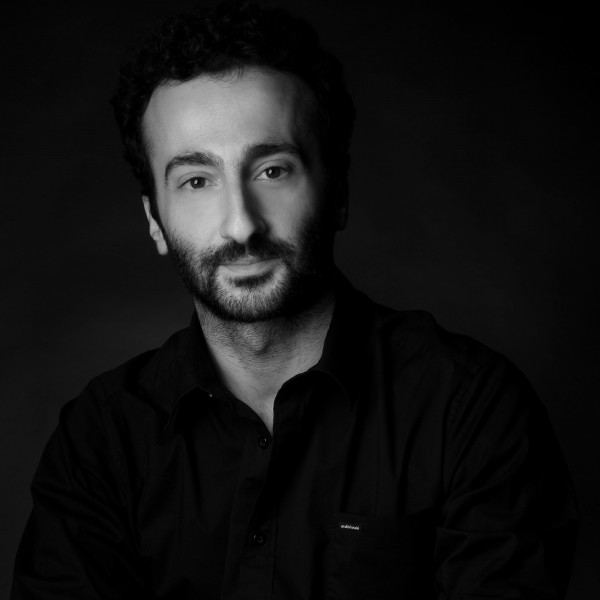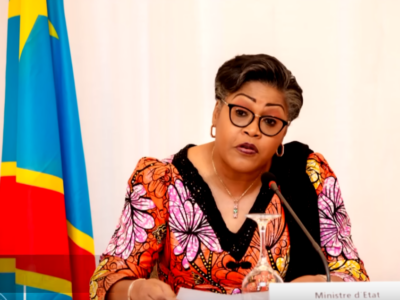
Lucien Bourjeily’s headshot
A play that examines Lebanon’s censorship system has been approved by the country’s office in charge of artistic permits, a decision that could point towards a more open future for the country’s writers and performers.
“La3younak Sidna,” (“Sir Yes Sir”) was written by Lucien Bourjeily and will be produced by March, an NGO that campaigns for free speech in Lebanon. Billed by Bourjeily as the theatrical version of a documentary, it chronicles the team’s own struggles as they tried and failed to get a permit for their previous work, “Bto2ta3 aw ma Bto2ta3” (“Will it Pass Or Not?”).
The expectation was that this play would be censored as well, but to their surprise, the permit was granted after a month’s wait.
Jubilant messages from the team flooded social media. “After almost 2 years of banning, ill-treatment, and unlawful passport confiscation by the authorities comes today's amazing SUCCESS,” reads Bourjeily’s Facebook status on 16 October. Gino Raidy, a member of March’s advisory board, began a blog post with the words: “Flabbergasted would best describe our reactions at this unexpectedly positive decision.”
Bourjeily is a longstanding critic of Lebanon’s lack of free expression protections. His last play “Bto2ta3 aw ma Bto2ta3” was a fictional farce about bumbling General Security officers decimating the scripts of weary playwrights. There was a long wait after he submitted it to the bureau last year, and it was finally denied on the grounds that it was poorly written and inaccurate.
Lebanon’s laws allow censors to cut anything that might inflame political or religious tensions, but the system lacks oversight, and there is wide scope for individual officers to interpret laws as they see fit.
“We wanted to show that [the censors] can manipulate the law as much as they want,” Bourjeily told me in January, “and this is the biggest proof. They say ‘we’re protecting people,’ but they are only protecting themselves.” He vowed that he was committed to a long fight, and his perseverance earned him a spot on the shortlist for the NGO Index on Censorship’s 2014 Freedom of Expression Award, who also featured text from the play online and in their magazine.
Later in the spring, Bourjeily’s passport was confiscated by General Security just before he was due to fly to the UK to take part in the London International Festival of Theatre. The explanation? “You know what you did.”
Bourjeily spoke out about the incident online, sparking an international outcry, and the passport was returned a couple of days later.
Undeterred by all these setbacks, Bourjeily decided to poke fun at General Security by taking them at their word. If they deemed his fictional play about censorship too unrealistic, he’d write a play that documented his own experiences trying to get a theatrical permit, using real names and repeating conversations verbatim.
“There’s a saying in Arabic,” he told me. “Follow a liar to his doorstep.” There wasn't much hope that the play would get approved, but Bourjeily saw the process as an effective awareness campaign, and he relished the chance to include scenes that were even funnier and more bizarre than anything he could have dreamed up, like the time he walked in to see a copy of Playboy magazine on an officer’s desk – to censor it, of course.
He imagined that once the permit was once again denied, he might perform the piece online via a live-streaming service, and then he’d write yet another sequel. In an interview with the Lebanese newspaper the Daily Star, he joked, “maybe one day the tenth sequel of ‘Will It Pass or Not?’ will be accepted and then we’ll throw a great party.”
So when the permit finally arrived, granting permission for the new play “La3younak Sidna” to be performed in Lebanon, Bourjeily and the March team could hardly believe their eyes.
The permit stated that the play was approved, pending one change. The censor board requested the playwright replaced the term “General Security” with “Censorship” throughout the text. The head of general security’s signatures on the request suggested that the text went all the way to the top of the chain before the request was granted. (General Security could not be reached for comment.)
Bourjeily’s Facebook post was full of wild enthusiasm. “Many times in Lebanon we’ve given up on our homeland just moments before we reach a better country,” he wrote, “just moments before we succeed in breaking the chains of oppression and corruption… this time we won’t & we shouldn’t!! … THANK YOU… each & everyone of you for standing up against censorship & supporting freedom of speech! One small strategic battle WON: hopefully many others will follow!!”
Raidy’s response was more measured. He noted on his blog that, “since our last attempt, the chief of the bureau and most of the team have been replaced and the new chief and team seemed far less intent on censoring free speech.” He added that the shift in attitude only confirms what the group have always argued, that the law is too vague, and that he hoped “that this will be the first of many steps towards a more pragmatic stance on censorship from the government.”
The play debuted at the American University of Beirut on October 23.
Also see our in-depth coverage Fighting for Their Art Against Censorship.







1 comment